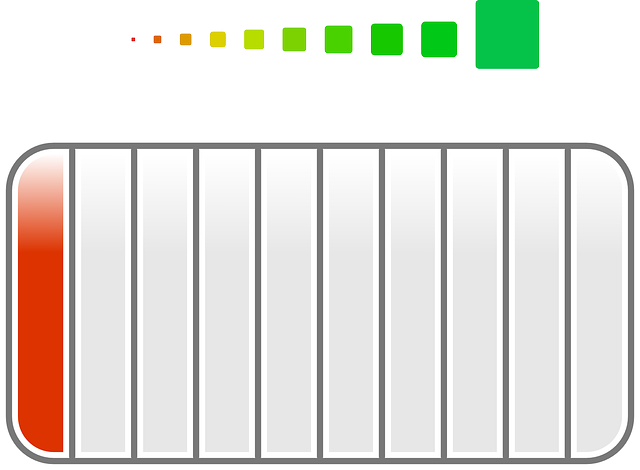Navigating global compliance for UK securities filings like 10-K and 10-Q requires professional translation services to overcome diverse regulatory landscapes and languages worldwide. Specialized translators with financial and legal expertise ensure accuracy, avoid legal issues, and streamline operations across multiple markets. Best practices include using qualified translators, conducting quality assurance checks, leveraging translation memory tools, and embracing advanced machine translation (MT) and artificial intelligence (AI) technologies for efficient, precise, and compliant global disclosures.
In today’s globalized market, UK companies must navigate complex international regulations, particularly when it comes to securities filings. Accurate translation of essential documents like 10-K and 10-Q is crucial for compliance with varying foreign requirements. This article explores the intricacies of global compliance for UK securities filings, highlighting the vital role of professional translation services in ensuring precision and consistency across borders. We delve into key challenges, best practices, and the latest technologies streamlining this critical process.
- Understanding Global Compliance Requirements for UK Securities Filings
- The Role of Professional Translation Services in Cross-Border Reporting
- Key Challenges in Translating 10-K and 10-Q Documents Accurately
- Best Practices for Ensuring Quality and Consistency in Financial Translation
- Leveraging Technology to Streamline the Translation Process for Global Compliance
Understanding Global Compliance Requirements for UK Securities Filings
Navigating global compliance requirements for UK securities filings can be a complex task, especially with the diverse language and regulatory landscapes worldwide. Companies listed on UK exchanges must adhere to stringent rules when filing documents like 10-K and 10-Q reports, ensuring they meet local standards while staying compliant across multiple jurisdictions. This involves understanding not just the nuances of different legal systems but also the specific languages in which these filings need to be made.
Securities Filings UK, including crucial documents such as 10-K and 10-Q, require professional translation services to guarantee accuracy and consistency. Specialized translators with expertise in financial terminology and regulatory compliance are essential to avoid misinterpretations that could lead to legal issues. By leveraging these translation services, companies can streamline the global compliance process, ensuring their filings meet international standards while adhering to the stringent requirements of each market they operate in.
The Role of Professional Translation Services in Cross-Border Reporting
In today’s globalized financial landscape, companies operating across borders must navigate complex regulatory environments to ensure compliance. For UK-based entities filing Securities Filings (such as 10-K and 10-Q reports), accurate translation services play a pivotal role in this process. Professional translation ensures that these critical documents are not only linguistically precise but also conform to the nuances of different jurisdictions, thereby facilitating smooth cross-border reporting.
Specialized translation services for Securities Filings UK (10-K, 10-Q) must go beyond simple word-for-word translation. They require a deep understanding of financial terminology and regulatory requirements in both the source and target languages. Reputable translation providers employ native speakers with expertise in finance and legal fields to deliver translations that are not only error-free but also reflect the intended meaning accurately, minimizing potential misinterpretations that could lead to compliance issues.
Key Challenges in Translating 10-K and 10-Q Documents Accurately
When translating UK securities filings like the 10-K and 10-Q for global compliance, accuracy is paramount. These detailed financial reports contain sensitive information that must be conveyed precisely to meet regulatory requirements worldwide. One of the key challenges lies in navigating not just linguistic differences but also varying accounting standards and terminology across jurisdictions. For instance, terms commonly used in UK accounting might not have direct equivalents in other languages, necessitating careful adaptation without altering the meaning or interpretation.
Another challenge is staying current with regulatory changes. Both 10-K and 10-Q forms are subject to updates and modifications by regulatory bodies, requiring translation services to be agile and knowledgeable about these evolving standards. Inaccurate translations could lead to misunderstandings, legal complications, and even financial reporting errors, highlighting the importance of engaging professional translators who specialize in securities filings and are proficient in multiple languages.
Best Practices for Ensuring Quality and Consistency in Financial Translation
When translating UK securities filings like 10-K and 10-Q for global compliance, maintaining quality and consistency is paramount. To achieve this, consider implementing best practices such as using qualified financial translators with native-level proficiency in both English and the target language. These professionals should be well-versed in industry terminology specific to finance and securities to ensure accurate translations.
Regular quality assurance checks are also essential. This involves reviewing translated documents against the original source for consistency, clarity, and accuracy in terms of financial data and reporting formats. Leveraging translation memory tools can help preserve consistent terminologies across multiple projects, enhancing both efficiency and coherence.
Leveraging Technology to Streamline the Translation Process for Global Compliance
In today’s globalised financial landscape, leveraging technology is no longer an option but a necessity for streamlining the translation process of UK securities filings like 10-K and 10-Q documents. Advanced machine translation (MT) tools and artificial intelligence (AI) platforms can significantly enhance efficiency and accuracy by automatically processing vast amounts of text data. These technologies employ neural networks to understand context, capture nuances in language, and ensure consistent terminology across different regulatory jurisdictions.
By integrating these innovative solutions into compliance workflows, financial institutions can reduce the time and resources typically spent on manual translation. This not only expedites the review process but also minimises the risk of human error, ensuring that global disclosures remain precise, compliant, and up-to-date with evolving regulatory standards.
As global markets become increasingly interconnected, accurately translating UK securities filings like 10-K and 10-Q is essential for cross-border reporting. Professional translation services play a pivotal role in navigating these complex requirements, ensuring compliance, and facilitating seamless communication across borders. By adopting best practices and leveraging technology, companies can streamline the process, maintain quality and consistency, and stay ahead in the global financial landscape.


